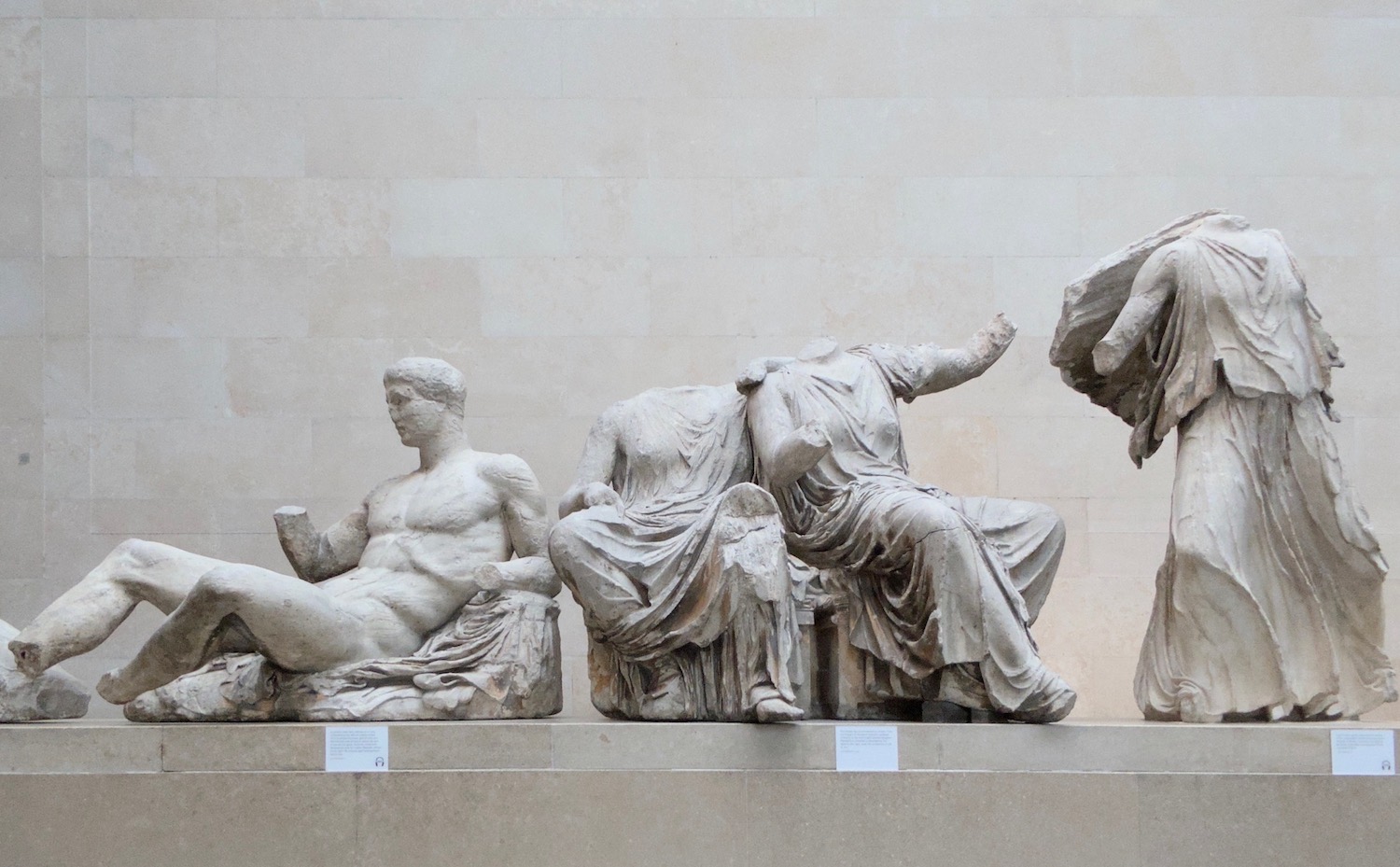Pressures between the British and Greek governments have escalated over the contentious issue of the Parthenon Sculptures, commonly known as the Elgin Marbles. A planned meeting between British Chancellor Rishi Sunak and Greek Prime Minister Kyriakos Mitsotakis in London was abruptly cancelled by No 10, deepening the diplomatic row.
Expressing disappointment, Mr Mitsotakis, who rejected an alternative meeting with the deputy prime minister, lamented the cancellation just hours before the scheduled time. The move followed Mr. Mitsotakis’s recent statement to the BBC, where he advocated for the return of the marble, likening the current situation, with some artefacts in London and the rest in Athens, to “cutting the Mona Lisa in half.”
In a press statement, Mr Mitsotakis emphasized the need for constructive debate. They expressed disappointment at the missed opportunity to address global challenges such as the situations in Gaza and Ukraine, the climate crisis, and migration. The Greek government insider noted that Mr Mitsotakis was “baffled” and “annoyed” by the cancellation.
The scheduled meeting, set for lunchtime on Tuesday, was anticipated to last 45 minutes. Sources suggest that Mr Sunak was displeased with Mr Mitsotakis’s appearance on a BBC program, a sentiment that led to the cancellation. The British government confirmed the move and offered a meeting with Deputy Prime Minister Oliver Dowden instead.
A senior Conservative source defended the cancellation, reiterating the British position that the Elgin Marbles are integral to the British Museum’s permanent collection. The spokesperson deemed any suggestion of negotiation on the matter reckless and against the 1963 British Museum Act, which prohibits the removal of objects from the institution’s collection.
Mr Mitsotakis, having met with Labour leader Keir Starmer earlier, is set to return to Greece on Tuesday without meeting with Mr Dowden. The British government asserted that there were “no plans” to alter the 1963 British Museum Act. However, the possibility of a loan not requiring a legal change remains a point of contention.
As the dispute unfolds, it adds another layer to the cultural and political dynamics between the two nations. Critics view it as a theatrical display of the ongoing culture war, while others emphasize the need for severe economic leadership in these challenging times. The diplomatic impasse underscores the complexity of navigating historical legacies and their impact on contemporary international relations.
A Brief History of the Parthenon Sculptures
The Parthenon Sculptures, also known as the Elgin Marbles, are a collection of classical Greek marble sculptures that once adorned the Parthenon temple on the Acropolis of Athens. Their history is intertwined with ancient Greece, the Ottoman Empire, and a controversial chapter involving British diplomat Lord Elgin.
Ancient Greek Origins (447–438 BCE): The Parthenon, a temple dedicated to the goddess Athena, was constructed during the Golden Age of Athens under the supervision of the renowned architects Ictinus and Callicrates. The sculptures, designed by the sculptor Phidias, adorned the frieze, metopes, and pediments, depicting various mythological scenes.
Ottoman Rule (1460–1687): In the 15th Century, the Ottoman Empire conquered Athens. The Parthenon was repurposed as a mosque, and some sculptures suffered damage during conflicts. However, many remained intact.
Lord Elgin’s Acquisition (1801–1812): Lord Elgin, the British ambassador to the Ottoman Empire, obtained a controversial permit to remove sculptures from the Parthenon. His agents dismantled many of the frieze, metopes, and pediments, transporting them to England. Elgin argued he aimed to preserve the artworks, but the circumstances of the acquisition have fueled ongoing debates.
British Museum (1816–Present): Facing financial difficulties, Lord Elgin sold the sculptures to the British government, and they were subsequently placed in the British Museum in London. The move sparked considerable controversy and criticism at the time and in subsequent years.
Greek Calls for Repatriation (20th Century Onwards): Greece has consistently sought the return of the Parthenon Sculptures, viewing them as a crucial part of its cultural heritage. Diplomatic efforts, public campaigns, and legal discussions have continued for decades, asserting that the sculptures belong in their original context.
Contemporary Debate (21st Century): The Debate over the return of the Parthenon Sculptures has intensified in recent years, with Greece actively lobbying for repatriation. Supporters argue that the sculptures form an integral part of the Parthenon and should be reunified in Athens. At the same time, the British Museum maintains that they are a vital part of its collection, accessible to a global audience.
The Parthenon Sculptures thus stand at the intersection of ancient art, colonial history, and contemporary cultural diplomacy, embodying a complex narrative of preservation, acquisition, and ongoing calls for repatriation.
Top Photo: Elgin Marbles Dominic’s pics Courtesy Wikki Commons

